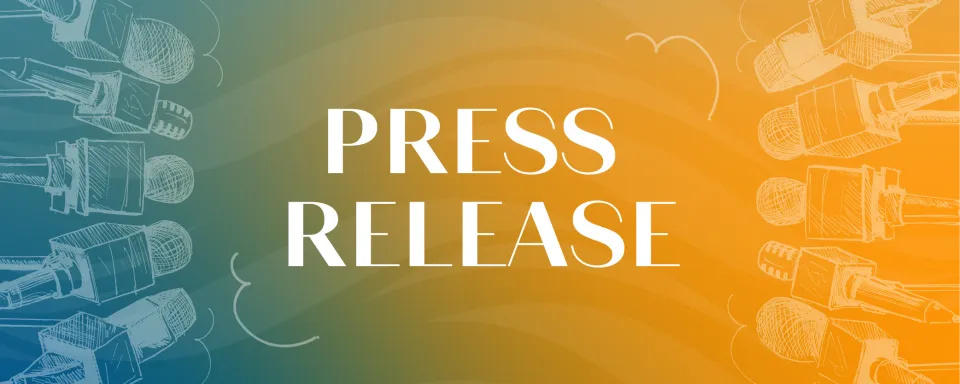- Home
- /
- NWAC brings voices of Indigenous women to international climate-change forum
FOR IMMEDIATE RELEASE
Published on November 27, 2023

“It is vital that the world hears Indigenous women’s perspectives, whether those women are from Canada, or from Africa or South America. Our voices do need to be amplified.”
…NWAC 1st VP President Gena Edwards
GATINEAU, Que. – Two representatives of the Native Women’s Association of Canada (NWAC) will be on the ground in Dubai to share the perspectives and concerns of Indigenous women living in Canada with delegates to the 2023 United Nations Climate Change Conference (COP28) which runs from Nov. 28 to Nov. 30.
Gena Edwards, an environmental activist from the Ts’kw’aylaxw First Nation in British Columbia who is NWAC’s First Vice President, and Lisa J. Smith, an Inuk lawyer and Interim advisor to NWAC President Carol McBride, will bring voices of Indigenous women from Turtle Island to the annual international forum.
“We all have the common goal of sustaining Mother Earth,” says Ms. Edwards. “As an Indigenous woman, I am a water carrier. And it is vital that the world hears Indigenous women’s perspectives, whether those women are from Canada, or from Africa or South America. Our voices do need to be amplified. And we need to be, not only heard, but listened to.”
Global warming threatens the ability of Indigenous people and communities to exercise their constitutionally protected rights, including the right to hunt and fish, and to carry out their traditional practices and ceremonies. First Nations, Inuit and Métis women, girls, Two-Spirit, transgender and gender-diverse people are disproportionately impacted by climate change. For those reasons and others, NWAC leaders and Elders say Indigenous women must be central to the discussions around its mitigation.
While at COP28, Ms. Edwards and Ms. Smith will host an event called Inclusive Resiliency: Indigenous Women, Two-Spirit, Transgender and Gender-Diverse Peoples on the Frontlines of Reducing Climate Disaster. They will outline a project NWAC is conducting, in collaboration with the Red Cross, to underline the importance of employing a trauma-informed approach to climate emergency response. The NWAC representatives will arrive early to take part in the Facilitative Working Group (FWG) of the Local Communities and Indigenous Peoples Platform (LCIPP) that will be held just prior to COP, where they will engage with their Indigenous counterparts on the best ways to influence the global climate-change negotiations and to ensure Indigenous ways of knowing (and cultural relevance) are reflected in global climate action.
“My wish is to bring an Indigenous perspective to light for climate change, and how it affects Indigenous women, girls, and gender-diverse people in Canada,” says Ms. Edwards. “We want to open up a dialogue with all other human beings in this world around this hugely important issue.”
-30-
For information, or to arrange an interview, contact: Roselie LeBlanc at roselie@sparkadvocacy.ca or 604-928-3233.
About The Native Women’s Association of Canada
The Native Women’s Association of Canada (NWAC) is a national Indigenous organization representing political voices of Indigenous women, girls, Two-Spirit, transgender, and gender-diverse people in Canada. NWAC is inclusive of First Nations—on- and off-reserve, status, non-status, and disenfranchised—Inuit, and Métis. An aggregate of Indigenous women’s organizations from across the country, NWAC was founded on a collective goal to enhance, promote, and foster social, economic, cultural, and political well-being of Indigenous women, girls, Two-Spirit, transgender, and gender-diverse people within their respective communities and Canadian societies.
À propos de l'Association des femmes autochtones du Canada
L'Association des femmes autochtones du Canada (AFAC) est une organisation autochtone nationale qui représente la voix politique des femmes, des filles, des transgenres, des bispirituels et des personnes de sexe différent au Canada, y compris les membres des Premières nations vivant dans les réserves et hors réserve, les Indiens inscrits et non inscrits, les personnes privées de leurs droits, les Métis et les Inuits. Regroupant des organisations de femmes autochtones de tout le pays, l'AFAC a été fondée dans le but collectif d'améliorer, de promouvoir et de favoriser le bien-être social, économique, culturel et politique des femmes autochtones au sein de leurs communautés respectives et des sociétés canadiennes.